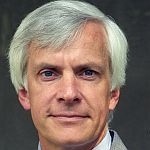 In March 1998, almost exactly fifteen years ago, Time Magazine
In March 1998, almost exactly fifteen years ago, Time Magazine
celebrated its 75th anniversary with a gala gathering at Radio City in
New York attended by 1200 of the biggest movers and shakers in the
world. Speakers at the dinner included President Bill Clinton, Mikhail
Gorbachev, Bill Gates, Toni Morrison, and Steven Spielberg. A number of
guests paid tribute to individuals they deeply admired. John F.
Kennedy, Jr., whom America knew first as John John and I knew from being
his high school English teacher in the 1970s, offered a heartfelt toast
to Robert McNamara. McNamara had been Secretary of Defense for
Presidents Kennedy and Johnson; he was perhaps the principal architect
for America’s involvement in Vietnam, which some people called Mr.
McNamara’s war. He was undeniably brilliant, but not always right.
That
night at the gala, John Kennedy Jr. observed that after leaving public
life and keeping "his own counsel" for many years, "Robert McNamara did
what few others have done. He took full responsibility for his
decisions and admitted that he was wrong. Judging from the reception he
got," Kennedy added, "I doubt many public servants will be brave enough
to follow his example." Kennedy concluded, "So tonight I would like to
toast someone I’ve known my whole life, not as a symbol of pain we
can’t forget, but as a man. And I would like to thank him for teaching
me something about bearing great adversity with great dignity…"
Kennedy
was right that McNamara was for millions a symbol of the pain caused by
that tragic war. When, in 1996, McNamara broke his silence and
published his book In Retrospect: The Tragedy and Lessons of Vietnam,
many Americans were furious, looking on the book as way too little and
way too late.
When John F. Kennedy Jr. toasted him for having
done so and for having borne, perhaps, the adversity that comes from
having to live with those mistakes, he, too, was excoriated. What could
JFK Junior possibly have been thinking, some people asked themselves,
to salute Robert McNamara, of all people?
Teachers, ideally,
learn from their students as well as teach them. I learned something
from my former student, young John Kennedy, but I confess it took a long
time. Only now, after the tenth anniversary of the invasion of Iraq,
do I understand in a way I didn’t fifteen years ago, that while
McNamara’s mistakes will be forever excruciatingly painful, it takes a
kind of courage and a kind of personal integrity and a kind of
patriotism, characteristics that I have long admired and that
conservatives often espouse, for a person like McNamara to acknowledge
his mistakes as he did. And a person, particularly a public person,
acknowledging his or her mistakes is indeed something worth honoring.